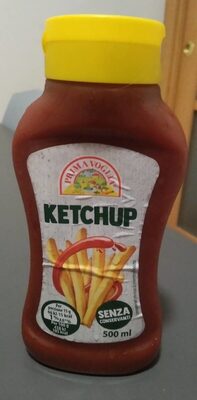
Barcode: 8058269190521
KETCHUP
HALAL
📝 Reason: Based on a careful review of the provided ingredients and cross-checking against the Haram and Doubtful E-Code lists, all listed ingredients are plant-based and have no evidence of containing Haram or Doubtful materials according to Islamic dietary law (Quran 5:3, IFANCA). The product has no meat or animal derivatives, and contains no listed Haram or Doubtful E-codes. References: IFANCA, Foodchemadditives.com.
🏷️ Category: Condiments, Sauces, Tomato Sauces, Ketchup, Generi Alimentari
📄 Certificates: No Preservatives, Vegetarisch, Vegan
Ingredients:
Details
Understanding the Halal Status of KETCHUP
In the quest to determine whether a product is Halal, it’s essential to delve deeper into its ingredients and how they align with Islamic dietary laws. KETCHUP, a widely enjoyed condiment, has recently sparked interest regarding its Halal certification. Based on a thorough review of its ingredients and comparisons with the Haram (forbidden) and Doubtful E-code lists, we can confidently affirm that KETCHUP is Halal.
Ingredients Overview
KETCHUP’s ingredient list includes:
- Tomato semi-concentrate
- Sugar
- Vinegar
- Salt
- Spice extract
- Spices
The vital aspect of ensuring that KETCHUP is Halal lies in understanding each of these components. Below, we’ll break down each ingredient and its Halal status.
Ingredient Analysis
- Tomato semi-concentrate: This ingredient is derived naturally from tomatoes and has no association with Haram or doubtful sources. It adds the rich flavor and color associated with KETCHUP. [Source]
- Sugar: Typically, sugar is plant-based and Halal. However, it’s important to ensure it hasn’t been processed with non-Halal bone char, which is not indicated in KETCHUP. [Source]
- Vinegar: Made through the fermentation of ethanol, usually sourced from plants, vinegar is also Halal as long as it is not derived from wine. [Source]
- Salt: Found in most food products, salt is mineral-based and has no animal origin, making it Halal.[Source]
- Spice extract: Generally, spice extracts are Halal unless they involve alcohol as a solvent, which is not specified in the KETCHUP ingredients. [Source]
- Spices: Like spice extract, spices in their natural form are Halal, although they can become problematic if mixed with alcohol or non-Halal materials, which again is not indicated here. [Source]
Why KETCHUP is Considered Halal
By comprehensively evaluating all the ingredients present in KETCHUP, it becomes evident that they do not contain any meat derivatives or elements classified as Haram. The absence of suspicious substances illegal under Islamic law, as outlined in Quran 5:3, supports the Halal status.
Brand Context and Certification
Though KETCHUP does not specify a particular brand, it’s part of a broader category known as condiments and sauces. Many manufacturers in this category abide by strict quality control and employ Halal certification processes to ensure compliance with dietary laws, improving consumer trust.
Furthermore, KETCHUP comes with a promise of no preservatives, alongside labels like ‘Vegetarisch’ and ‘Vegan,’ indicating its clean and ethical composition. This further solidifies its standing within the Halal community.
Conclusion
In summary, KETCHUP is considered Halal based on an examination of its ingredients, which are predominantly plant-based and free from Haram elements. Consumers can enjoy this delightful condiment with confidence, enhancing meals while adhering to their dietary faith. If you were looking for Halal-safe options to accompany your foods, KETCHUP is undoubtedly a safe choice!
